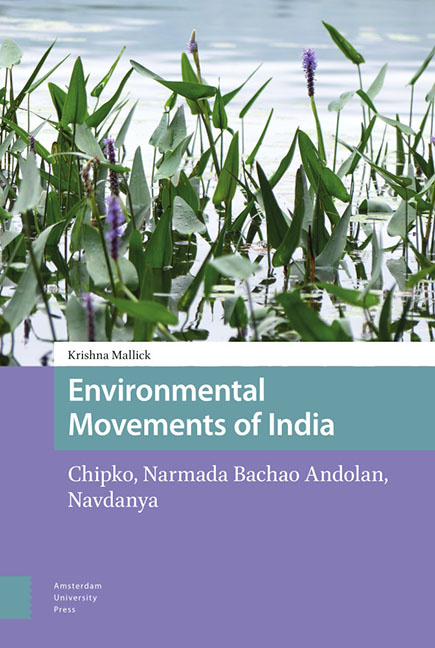Book contents
- Frontmatter
- Dedication
- Contents
- Acknowledgments
- Foreword
- Glossary
- Introduction: Three Grassroots Movements That Made a Global Impact
- 1 Historical and Cultural Contexts in India
- 2 Chipko (Hug the Trees) Movement
- 3 Narmada Bachao Andolan (NBA): Save the Narmada
- 4 Navdanya (Nine Seeds) Movement
- 5 Moral Implications of Environmental Movements
- 6 Hindu Ethics and Ecology
- Conclusion: The Symbiosis of Natural Resources and Local Needs
- Index
Foreword
Published online by Cambridge University Press: 13 November 2021
- Frontmatter
- Dedication
- Contents
- Acknowledgments
- Foreword
- Glossary
- Introduction: Three Grassroots Movements That Made a Global Impact
- 1 Historical and Cultural Contexts in India
- 2 Chipko (Hug the Trees) Movement
- 3 Narmada Bachao Andolan (NBA): Save the Narmada
- 4 Navdanya (Nine Seeds) Movement
- 5 Moral Implications of Environmental Movements
- 6 Hindu Ethics and Ecology
- Conclusion: The Symbiosis of Natural Resources and Local Needs
- Index
Summary
I promise that you will feel better after reading this book. Bringing to life underappreciated social movements that have made a huge, positive difference in our world, Environmental Movements of India is a gift. It is needed now more than ever. Krishna Mallick's profound passion for global environmental justice shines throughout as it brings to life key environmental movements in India.
Dr. Mallick's expertise in both Eastern and Western philosophy along with her background in environmental studies, women's studies, and peace studies bring a unique perspective to our understanding of the sources, range, and impact of environmental activism.
The three environmental movements of India that Dr. Mallick explores have developed over the last 50 years and reveal significant, fascinating differences between Eastern environmentalism and its Western counterpart. In an era obsessed with economic growth and dangerously blind to environmental sustainability, this book shows how the voice of the disadvantaged is key in reducing social inequities that are worsening worldwide.
Environmental Movements of India gives voice to those who are not in a position of authority and power but who have still made an impact not only at the national level in India but also on an international and global scale.
Dr. Mallick's chosen case studies – the Chipko movement, the NBA, and Navdanya – demonstrate the profound inspiration of strong, Indian environmental ethics that have sustained environmental movements over many decades. At the same time, they showcase the potential of such ethics to provide principles for an alternative framework for global struggles in environmental conservation. A critical contribution of the author is bringing to light their roots in a philosophical framework that ranges from the heritage of Mahatma Gandhi to various environmental movements manifesting enduring environmental ethics. Furthermore, her analysis reflects a deep familiarity with the relevant literature on the debate about environmental vs. economic development.
The history of the Chipko, NBA, and Navdanya movements matters not only because of what these movements have accomplished in India. The leaders and followers of the movements have also embodied the ideals of the Gandhian method of satyagraha.
- Type
- Chapter
- Information
- Environmental Movements of IndiaChipko, Narmada Bachao Andolan, Navdanya, pp. 13 - 14Publisher: Amsterdam University PressPrint publication year: 2021

